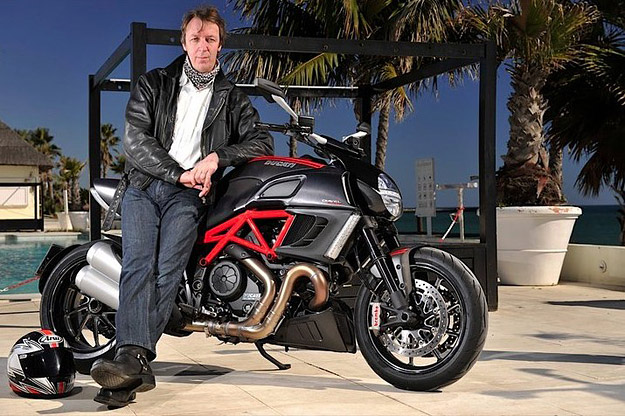
Update: Kevin Ash died on January 22, 2013, after an accident during a motorcycle press launch in South Africa. This interview was published in November 2011.
Kevin Ash is one of the world’s leading motorcycle journalists. His writing is syndicated to magazines all over the globe and his online home, Ash On Bikes, is essential reading—packed with intelligent observations and devoid of attitude. In our latest interview, he reveals his love for the Moto Guzzi Griso, why the BMW K100 is a terrible bike, and what’s wrong with electric motorcycles.
What was the first motorcycle you bought with your own money? An Iso 150 scooter for £10 when I was 14. A mate and I used to ride it (illegally, of course) over local heathland. I decided I was Evel Knievel and tried to jump off a plank propped up with bricks. I hit it flat out, the plank exploded and I went flying. No helmet, just a T-shirt. But you just bounce at 14. My first road bike was a Suzuki AP50—my fame was widespread, because this was the first red AP50 in Ipswich—and you don’t get much cooler than that. It’s been downhill ever since …
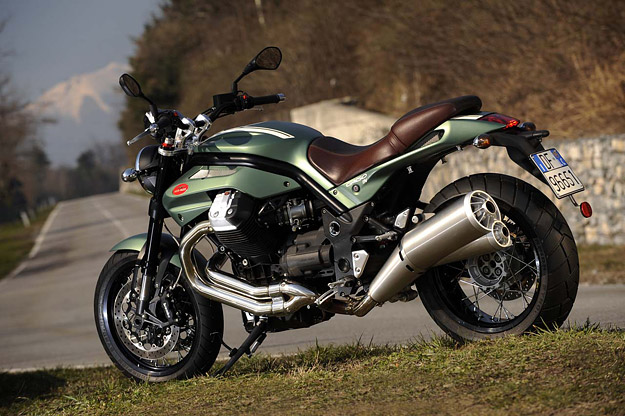
What do you think is the most beautiful production motorcycle ever built? Oh, there are loads I could cite. And I love the looks of some bikes you wouldn’t describe as beautiful—like the Katana 1100, the Ducati Diavel and various Harley Sportsters. As for beautiful bikes, I love the T160 Trident and the bevel drive 900SS, I’m not going to leave out the 916 just because it’s predictable, and the same goes for the absolutely stunning MV F4. But the bike whose looks do the most for me is the Guzzi Griso (above), sweeping and elegant on the left, overtly mechanical and rugged on the right. Then there’s the Super Glide (below)—the modern one, the old boat tail was fine except for the boat tail! Or the Commando 850 Interstate, the Z1, the hoover tube ZXR750 … I’ll be here for hours.
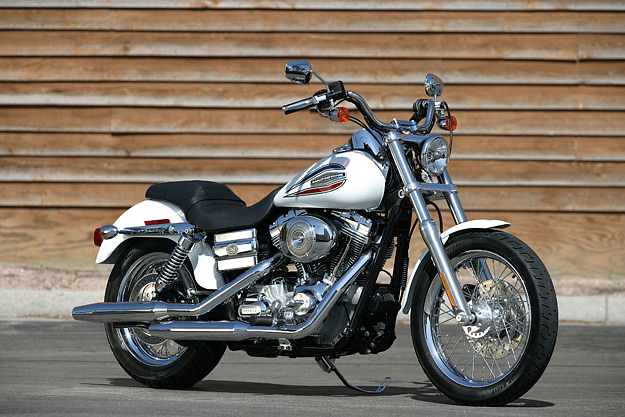
What motorcycle do you despise? The 1984 BMW K100 (below), as much for the fawning reaction of so many people because of the badge blindness it generated. Still you can find many who’ll tell you what a breakthrough machine it was, how it was reliable, handled and performed when it was none of these. It vibrated nastily, it was heavy and slow, it was inexcusably unreliable and it didn’t even resist corrosion very well. It took another three years for BMW to finish it, but the engine was always fatally compromised by being laid out longways and horizontally: the combination of long stroke and too-short conrods—both essential to make it fit in the chassis—meant it would always feel unpleasant and laboured.
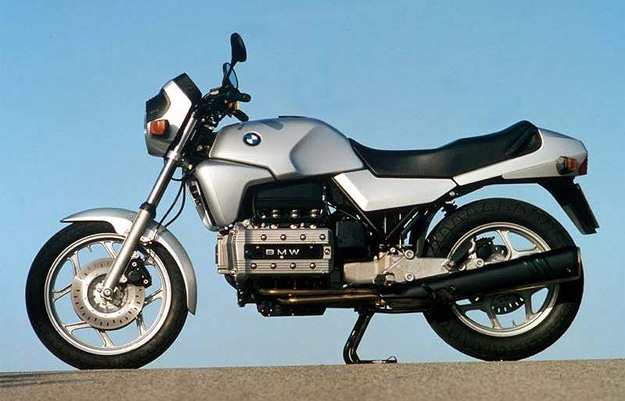
What is your idea of perfect happiness? There are moments on bikes when you’re concentrating so intently on the moment, the rest of the world, life, worries, memories are all pushed out of your mind as you focus on the now. That can happen while hustling a sweet handling bike up a sinuous mountain road or a powerful, communicative superbike around a really great race track. There’s no such thing as perfect happiness, but on two wheels, these can get close. I can think of a few other things too, but they don’t involve bikes …
Electric motorcycles: Yes or No? No way. For some reason people choose to ignore exactly where the electricity comes from, yet in the UK and many other countries, anything from 70 per cent upwards is from fossil fuels, mostly coal and gas. So even if you believe man-generated CO2 is causing climate change (and I don’t), switching to electric makes little difference anyway. You might, and only might, reduce emissions slightly, but not in a game-changing way. The silly small range and long recharge times make them impractical, while prices are very high and these won’t come down much. The lithium used in the batteries is under increasing demand, yet it’s a very limited resource.
An entirely new method of storing electricity is needed to transform practicality, and it must be invented (and then refined in labs) first. Developing electric road vehicles using existing technology is a waste and a deception. These things are clearly no solution to anything they claim to be, except moving pollution away from cities into someone else’s back yard. And it all ends up in the atmosphere anyway.
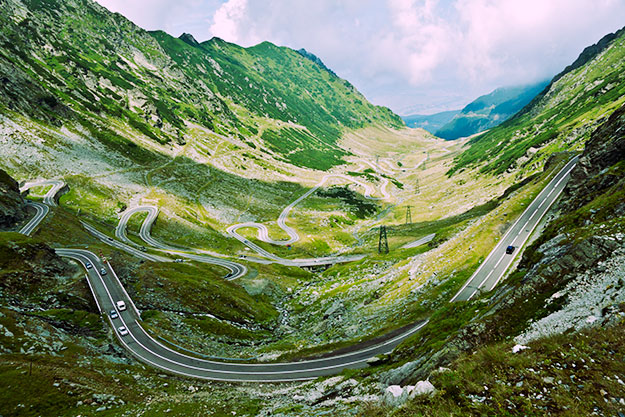
What is your favourite journey? Crossing the Alps on any number of routes. If anything clarifies why bikes are so much better than cars, it’s this. You experience the journey through the fall in temperature, feeling the chill of the air, the closeness of the edge of the road on perilous corners. You’re always aware of the road surface, you get damp as you ride through the clouds, cold at the peak of the pass, maybe stopping to add warm clothing, then as you descend you feel the warmth returning, the increasing humidity, the smell of the vegetation changing from fresh pine to heavy scented pollen, insects start to hit your visor again. You’ve been involved in a journey and the environment you’re in, not merely observed a trip through a screen in a climate-controlled comfortable box to the smell of your petrol station sandwiches.
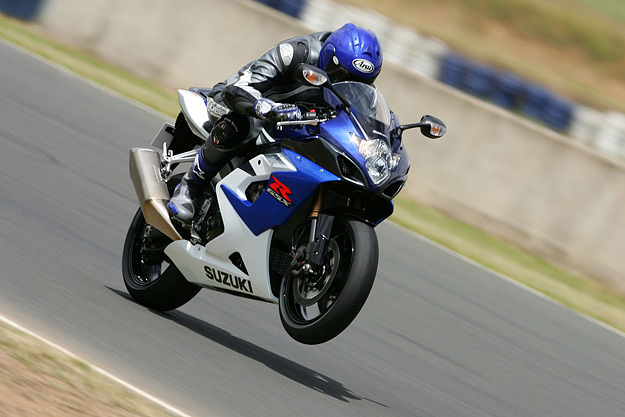
Which ‘everyday’ modern bikes do you think will become future classics? The equivalent of the Honda CB750 or Moto Guzzi V7 Sport, if you like? Some modern bikes are already heading that way, such as the original Fireblade and the 916. More recent ones include the seminal GSX-R1000 K5 (above) and the Diavel. The S1000RR and Multistrada mark a historical turning point, where the Europeans leapt ahead of the Japanese in technology, so they’re important. We’re over-familiar with the R1200GS but that surely is a classic, being transformed when it lost 30 kg in the transition from R1150GS in 2004. There will always be a demand for Hayabusas, Monsters, VFRs, early R1s, the ZX-6R B1 and other fine bikes too. One that’s not even on sale, yet will surely become a classic, is the Ducati 1199 Panigale (below). The technology in that is breathtaking and a major leap forward.
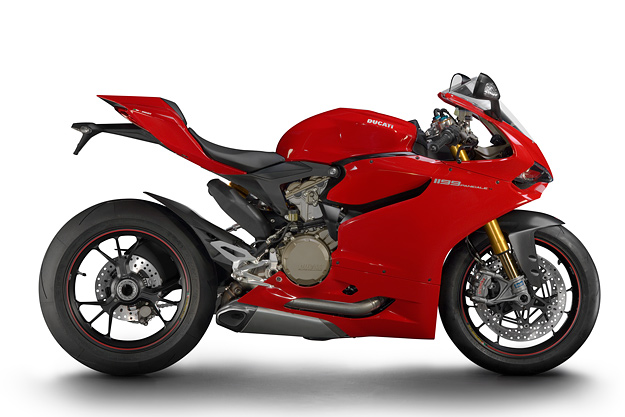
Who are your real-life motorcycling heroes? Sheene got me into bikes, not personally of course, but through transcending the usual barriers between bikes and the public. I also think he was one of the truly great riders and was actually underrated for that—and to a schoolboy, he was a hero. Rossi is ethereally talented and a fabulous character, but not heroic. For that I’d say Simon Pavey (below), who I saw on the 1999 Dakar when I was covering the event as a journalist. I have never, ever seen anyone as tough, determined and able to apply his outstanding skills under the most adverse conditions, which he did relentlessly for three weeks. (I’m proud too that I made an exhaust system for him out of beer cans and inner tubes …) He won the toughest man of the rally award, and that was the toughest year ever of the toughest race on earth. Two thirds of the rally failed to finish yet he was a privateer with no support, and he made it. Oh, and for most of the rally he had the flu. That’s a hero.
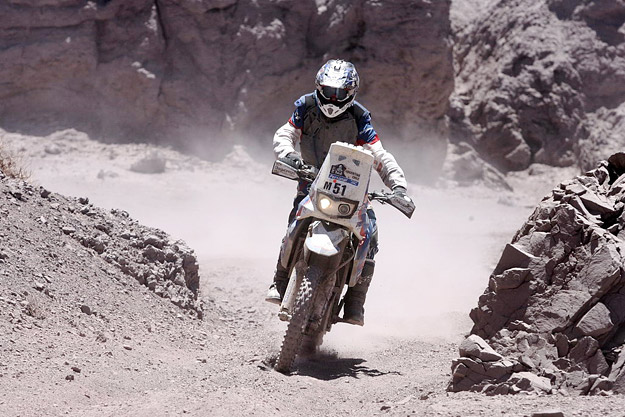
Are you optimistic for the future of motorcycling? In the medium term, yes. The fear of legislation tends to be worse than the laws we eventually end up with. I remember all the fuss about how emissions rules would kill bikes, or the 100 bhp limit would drive people away. Instead, bike emission rules are lax compared with cars and we have better performance than ever. And while the EU is trying to get France to drop its 100 bhp limit, there’s no evidence it does anything useful. I get annoyed by the scaremongering in some quarters of biking, like MAG (the UK motorcycle action group) saying bikes older than seven years will be banned from towns. This is nonsensical spin designed to bolster support for their protests: in fact, a few French towns are trying to ban all old vehicles, so it’s not an anti-bike measure at all. It won’t happen in most places anyway, certainly not the UK.
In the long term, our society is becoming so risk averse my youngest daughter is not allowed to run in the playground for goodness sake. What are the next generation going to make of airbag and crumple-zone-free vehicles that fall over? Bikes will simply become too scary, and I think motorcycling will suffer badly from a lack of fresh blood.
What is your current state of mind? Mellow and content. I cannot think of a better job to have, and being freelance is even better than working for a bike magazine as I bypass all the usual office politics and ladder climbing. It’s hard work but that only makes it more satisfying, I love writing, travel and riding bikes, and that’s exactly what my job involves. I have a fabulous family too, what else could I ask for? Okay, last week’s £57 million lottery win would have been nice …
Head over to Ash On Bikes for more straight-talking, smart observations on the latest motorcycles.